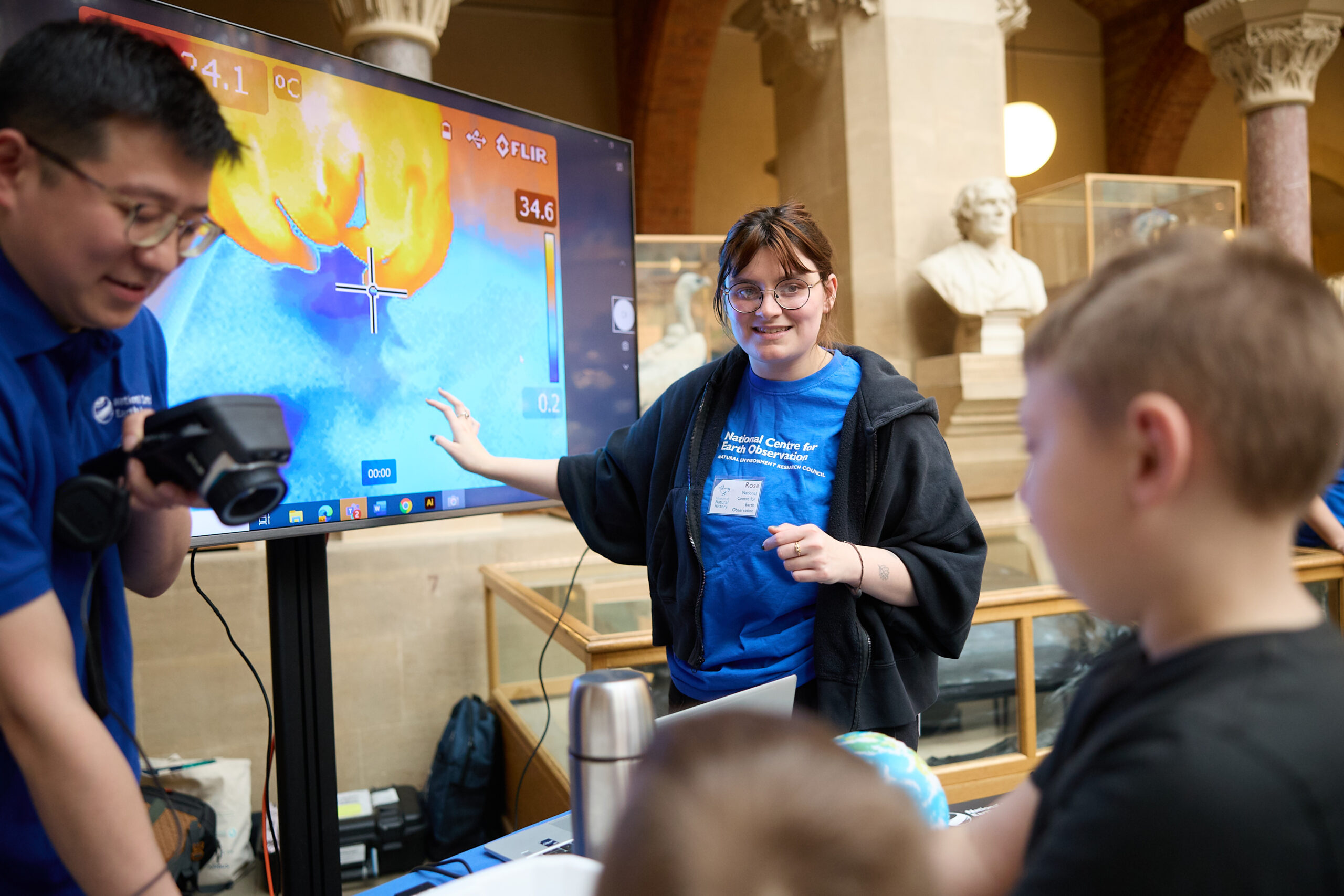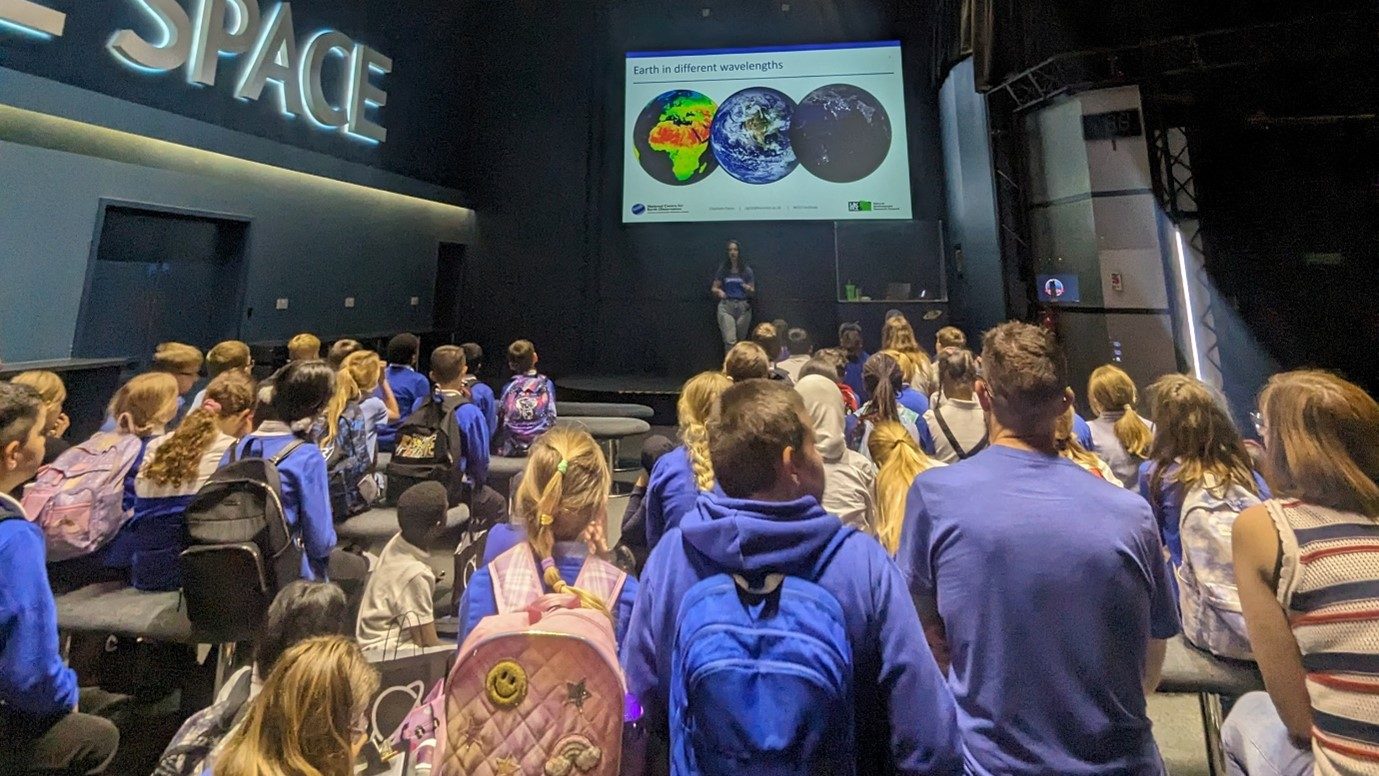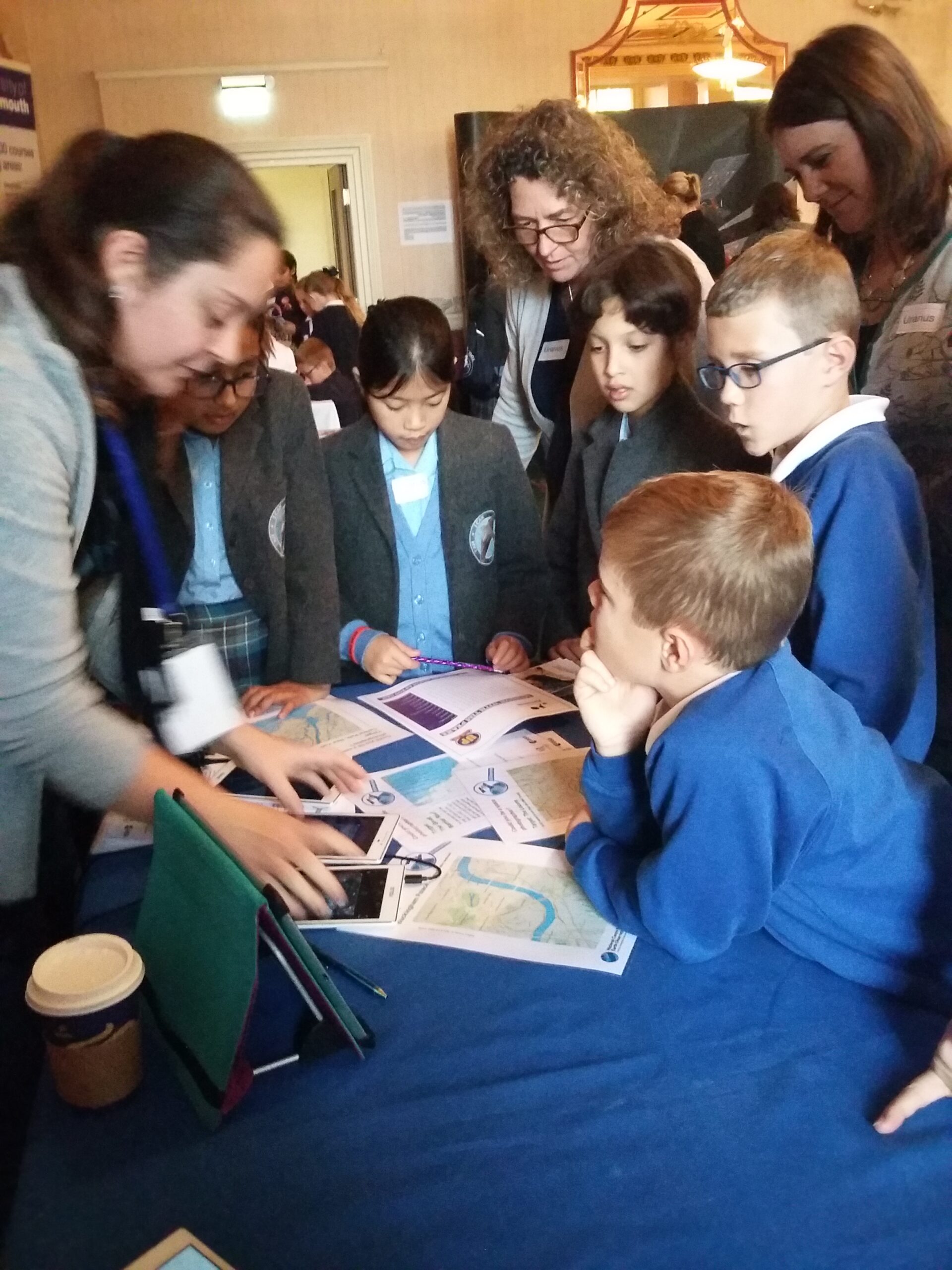
Education
Education at NCEO

Earth Observation (EO) plays a vital role in monitoring the health of our planet and there are a growing number of social and commercial applications. The fact that much EO data is free to access provides opportunities for developing transferable skills in interpretation, analysis and evaluation. And, of course, fascinating images of our planet from space are ideal resources for learners of all ages.
EO does not appear as a subject on a school timetable, it’s not a GCSE or Highers subject and you can’t – at the moment – study it at college as soon as you leave school. It doesn’t even appear as an option in many undergraduate courses. But, at the time the first weather satellites were being launched, the same was true of media studies! Most NCEO staff started out in fields such as physics, chemistry, environmental science, geography, maths, computer science or engineering. The work we now do not only draws on our knowledge of these subjects but also provides up-to-date and interesting contexts for people studying them.


Bring Earth Observation into your teaching

Support and resources for teachers, home educators and students aged 4–18.
Outreach Events

NCEO researchers, with the support of the outreach team, share their work with people across the country
For example, they may:
- Visit schools near their home institution
- Give talks as part of festivals such as Pint of Science
- Run workshops or activities at science centres or events such as New Scientist Live and university open days
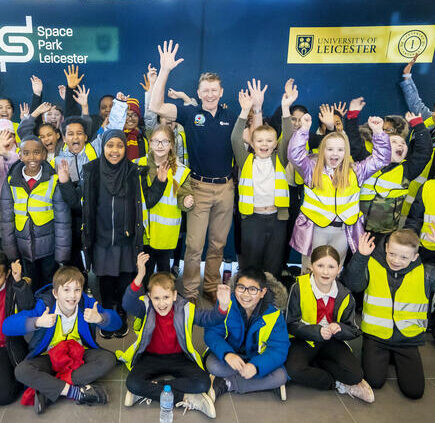
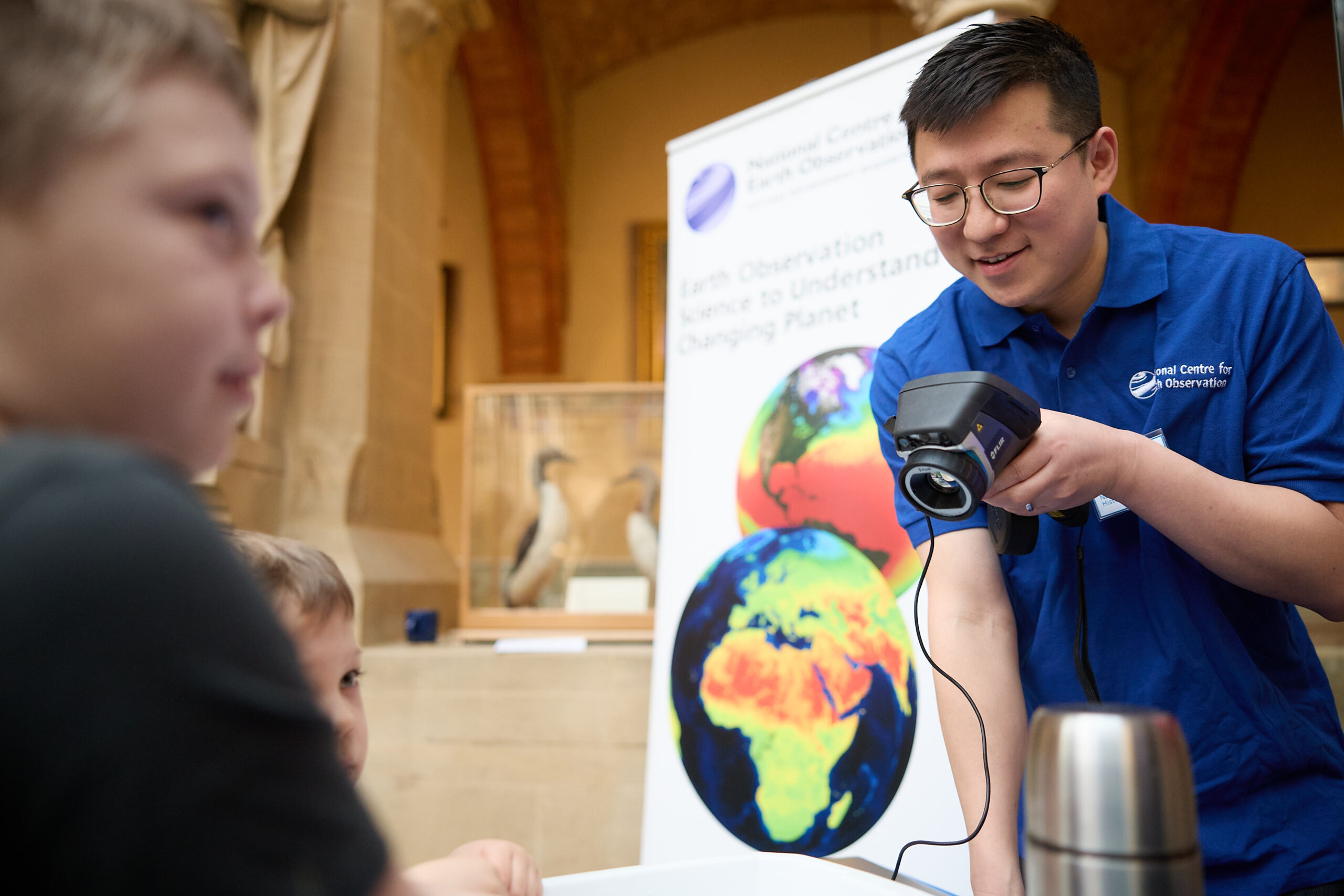
Stem Ambassadors

NCEO encourages researchers to share their work with the local community.
This can include leading or contributing to events run by their university or research institute, support programmes at a nearby Science or Discovery Centre or visit a school or youth group.


